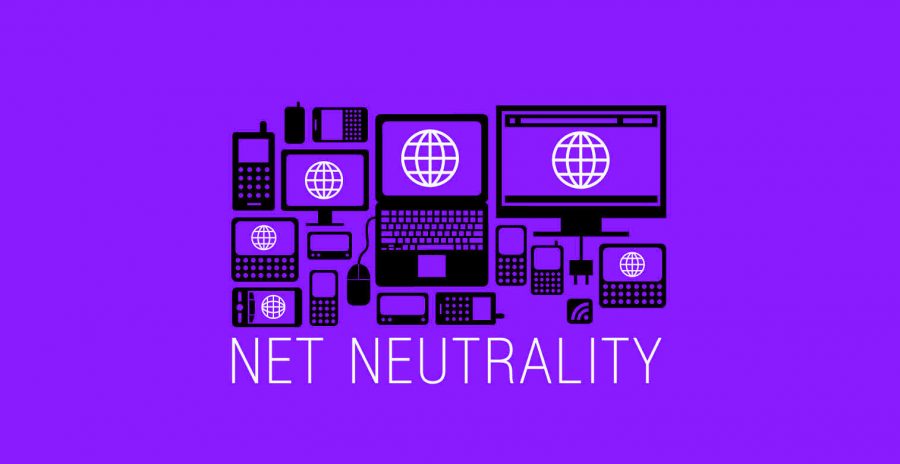Net Neutrality is an issue that is paramount for the future generations to come as some view this as a direct infringement on their right to the freedom of information. Net Neutrality is perceived as an Obama-era policy, yet the practice has actually been in order since the invention of the Internet. Internet Service Providers, ISPs, such as Verizon, AT&T and Time-Warner would be granted the ability to package sites on the Internet and require them be paid for to access them. With this ability, many have considered the possibility that ISPs could intentionally hinder internet speeds to certain sites. For these reasons, the repeal of Net Neutrality by the Federal Communication Commission (FCC) has received widespread condemnation from both sides of the political spectrum and faces active resistance by the people of America as the process is carried out.
“I think that for American democracy to thrive, the public needs access to all information freely and to be well informed. Our brand of democracy is unique and while repealing net neutrality might not stifle democracy in all cases, it might in ours,” said Jennifer Hitch, AP History teacher.
American democracy has wildly served as the figurehead for democratic institutions throughout the world in the modern era. To those who oppose the repeal of Net Neutrality, the repeal would directly conflict with the character of the United States and opposes one of the fundamental ideas of American society, the freedom of speech.
“Net Neutrality is an essential form of freedom of speech, especially in an era where technology has such a direct impact on our collective knowledge. However, as in any capitalistic society, once the government sees a practice as no longer useful or valuable to the institution, it is moved on from. Now, this may beg the question of whether the United States is a true, definite capitalistic society, but it is at least believed to be,” said junior Guillermo Barbella.
For those is in favor of repealing Net Neutrality, the argument is that the repeal would actually lead to a more readily available internet for those located in areas with little infrastructure that is conducive to internet access. However, many supporters of Net Neutrality see the opposite of effect if it is repealed as many who are impoverished would not be able to access certain sites because of the charges by ISPs. As with any divisive issue in American politics, both sides have points and counter-points.
“The Espionage Act of 1917 and the Sedition Act of 1918 is a great example of the restriction of free speech. The United States tends to limit free speech during times of war or conflict both formally and informally. For instance, one must think about McCarthyism during the Red Scare, people were afraid to say too much for fear it could be construed as Communist sympathy,” said Hitch.
Net Neutrality was born out of the ideas presented in the Bill of Right’s First Amendment, and to many, the First Amendment is seen as a quintessential representation of what American society was designed to be. The ultimate outcome for Net Neutrality will undoubtedly have a lasting impact on the American public, and it should be a topic that all Americans educate themselves on.
Categories:
Net Neutrality: The Responsibility We Share
January 19, 2018
0





